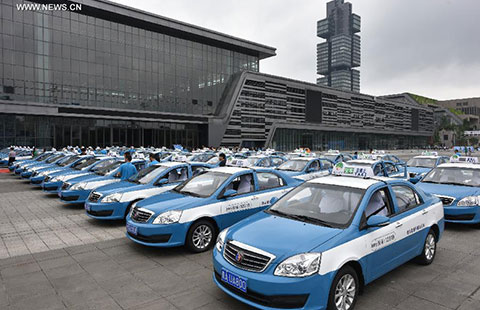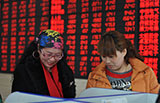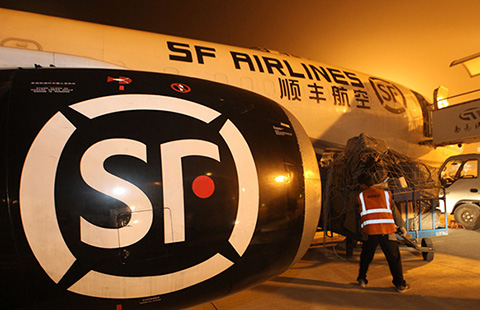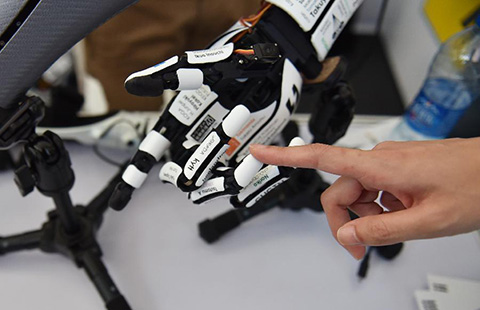Chinese chat app Momo gets buyout offer from CEO
(Agencies) Updated: 2015-06-24 09:11
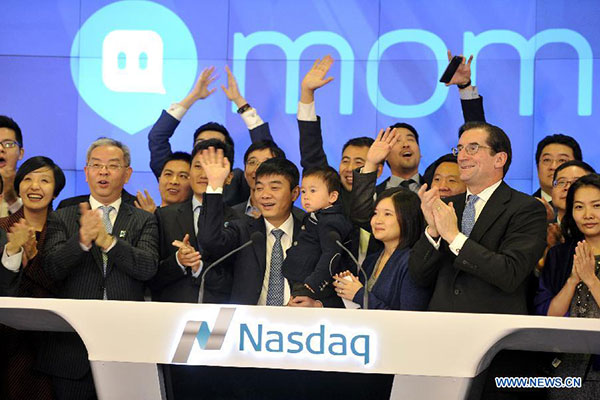 |
|
Tang Yan (center, front), founder and chief executive officer of China's mobile social networking platform Momo Inc attends the ceremony of ringing the opening bell at the NASDAQ in New York, the United States, Dec 11, 2014. [Photo/Xinhua] |
Momo, which helps users find friends based on locations and exchange messages, pictures and videos, is the latest in a string of Chinese tech companies that have received proposals to drop their US listings and take them private.
Security software company Qihoo 360 Technology Co Ltd received a $10.06 billion buyout offer from its CEO last week.
Many Chinese tech executives are betting on higher share valuations in China, where stock markets have recently rallied.
Momo's CEO, Tang Yan, and the buyout consortium already own about 47 percent of the company, with an aggregate voting power of about 84 percent. The offer values the company at $3.6 billion.
"There is no comparable company in the United States, so US investors may not fully understand the company's business model," Summit Research analyst Henry Guo said.
"They (Momo) believe if they go back to China and trade on the Shanghai stock market, their users and investors will know what they are doing, and they can get a better valuation."
Chinese Premier Li Keqiang earlier this month encouraged such companies to return, particularly those with "special ownership structures," referring to the contractual loopholes used by many Chinese firms to evade restrictions on foreign ownership.
The offer of $18.90 per American depositary share represents a premium of 20.50 percent to Momo's Monday closing price.
Shares of Momo, which is backed by Alibaba Group Holding Ltd, were trading at $17.42 by midday on Tuesday.
Momo went public last December at a time when Tang was facing allegations of stealing information from former employer NetEase Inc, where he worked from 2003 to 2011.
Since the listing, the stock had jumped more than 16 percent through Monday.
Momo, which had 78.1 million monthly active users in March, generates revenue mainly from membership fees and through advertisements, mobile games and emoticons.
The deal value is based on 377.8 million outstanding shares as of March 31, according to Thomson Reuters data. Each ADS has two ordinary shares.
The investment firms involved in the deal are Matrix Partners China II Hong Kong Ltd, Sequoia Capital China Investment Management LP and Huatai Ruilian Fund Management Co Ltd.
- Alibaba joins hands with embassies to feed buyers' appetite
- Exclusive team established to promote manufacturing
- Stocks rebound for second day after worst week in 7 years
- Victoria's Secret to open annual garment show in Dalian
- Greenland plans to expand its business in the US
- Australia commits $718m for China-initiated bank
- Turning metal waste into robot-like artwork
- Argentina, China to deepen cooperation in agriculture

